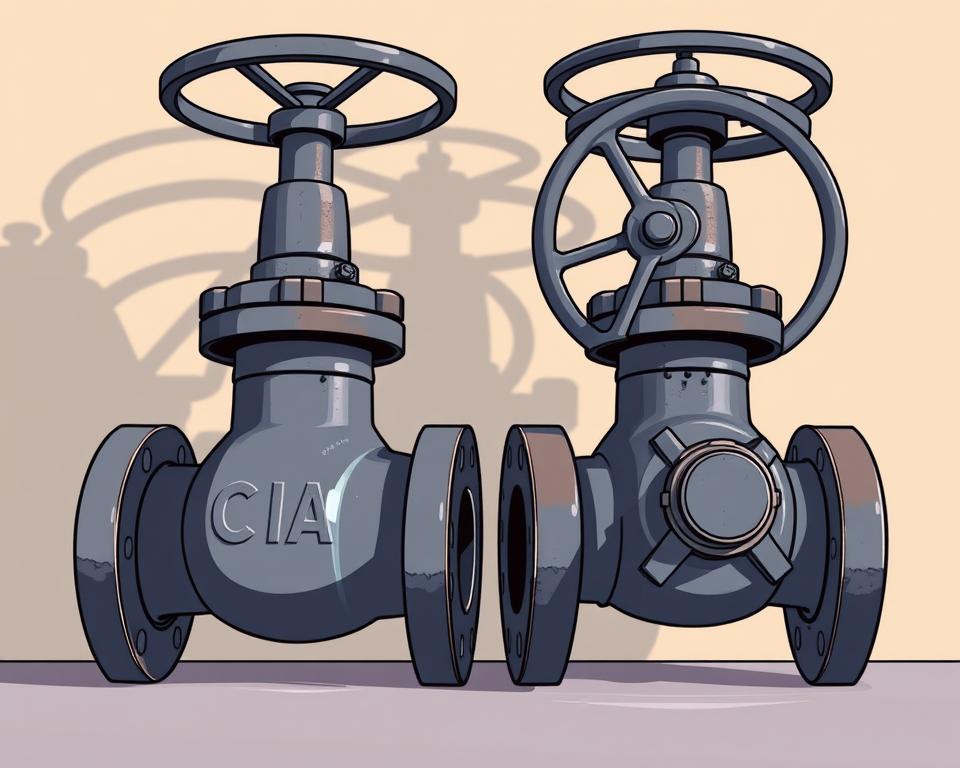Cast Iron Gate Valves: Rugged Industrial Flow Management
Quick stat: More than three-fifths of city water mains continue to use legacy shutoff equipment for dependable isolation during emergencies.
Our heavy-duty line of Cast Iron Gate Valve Manufacturer built for longevity in plant, building, and municipal use nationwide. Each unit pairs a sturdy body and bonnet with a time-tested gate design to withstand wear and limit corrosion under fluctuating pressure and temperature cycles.
The unobstructed gate cuts flow restriction in the open position, letting systems convey water and compatible media with less pressure loss. Designers and maintenance teams prefer the straightforward serviceability, standard connection options, and readily available parts that simplify selection and repairs.
This range spans multiple series and ratings to match standard duty ranges, end connections, and operator preferences. Count on predictable sealing, consistent operating torque, and cost-effective ownership aimed at uptime and low life-cycle cost.
Key Takeaways
- Engineered for long-lasting shutoff and consistent flow control in varied environments.
- Robust build helps resist wear, corrosion, and mechanical stress.
- Gate design offers low flow restriction and reduced pressure loss.
- Offered in a range of series and class ratings to match typical requirements.
- Service-friendly design, common parts, and predictable sealing support uptime.
Reliable, Precise Flow Control with Cast Iron Gate Valves
Engineered shutoff units with accurate wedges and machined seats deliver consistent performance across startup, steady-state, and shutdown cycles. Stout iron bodies and close-tolerance seating produce consistent sealing. That reliability ensures safe isolation and minimizes unplanned downtime.
Low-effort behavior cut handwheel effort and enable confident wedge positioning. Standard stems and accessories make it easy to adapt a valve to handwheel or actuation. Lower effort speeds routine checks and repairs.

Stem Options and Performance
| Feature | Rising Stem | Nonrising Stem |
|---|---|---|
| Open/close visibility | High — visual indicator | Low — enclosed indication |
| Overhead clearance | Requires vertical space | Suited to pits or vaults |
| Inspection | Straightforward inspection | Compact with comparable life |
When fully opened, the straight-through, full-port passage yields low pressure drop and smooth throughput. Tight shutoff reduces leakage risk and helps keep target pressure for downstream equipment. Together, these qualities reduce total life-cycle cost and boost system uptime across common commercial and light industrial applications.
Cast Iron Gate Valves: Specs, Designs, and Options
Key design selections—body alloy, stem type, and flange standard—dictate fit, function, and maintainability.
Body and Bonnet Build
The body and bonnet are cast iron for structural strength and resistance to vibration. Accurate guides maintain gate alignment for reliable sealing.
Rising Stem vs Non-Rising Stem
A rising stem offers a clear visual indication of position and is simple to inspect but needs extra headroom. A non-rising stem saves overhead space and shelters threads in the bonnet.
Both stem designs are compatible with common handwheels and can be actuator-ready or external indicator posts when automation is required.
Class 125 Guidance
Class 125 is widely used for water and general service within normal temperature envelopes. Verify with published pressure-temperature limits to confirm suitability for the intended operating envelope.
Flange Details and Dimensions
| Feature | Guideline | Details |
|---|---|---|
| Flange drill pattern | ASME/ANSI pattern | Fits standard piping layouts |
| Face-to-face | Per industry series | Check spec sheet for exact dimension |
| Bolting | Use spec’d grade and torque | Gasket selection affects sealing |
- Sizes and series: available from small line sizes to larger mains with several series and trim packages for wear resistance and ease of service.
- Trim choices and packing: seat and wedge materials blend tight shutoff and longevity; enhanced packing and bonnet gaskets bolster stem sealing.
- Integration notes: double-check dimensions, bolting, and torque prior to install.
Use Cases, Compliance, and Integration
Applications for these Resilient Seated Gate Valve cover municipal mains, building risers, and pump-room isolation points where dependable shutoff matters.
Water distribution and fire systems commonly apply these as sectional/control points. They offer readable position and reliable shutoff for life safety and utility networks.
Flow & Shutoff in Bi-Directional Service
The gate design permits shutoff in both flow directions when installed per manufacturer guidance. This flexibility simplifies layout decisions and works with redundant runs.
Maintenance, stem sealing, and bonnet integrity
Service-accessible bonnet hardware, guided wedges, and replaceable packing speed inspections and repacking. Proper packing adjustment preserves stem sealing during frequent operating cycles.
OS&Y Indicators and Best Practices
External indicators and OS&Y styles offer clear open/closed indication for inspections. Even with bi-directional capability, follow recommended direction orientation and clearance rules to ensure safe operation.
| System | Key Benefit | What to Verify |
|---|---|---|
| Distribution mains | Dependable isolation | Confirm class 125 pressure limits |
| Fire systems | Inspector-friendly indication | Use indicator or OS&Y option |
| Pump stations | Ease of maintenance | Match flange and face-to-face dimensions |
Wrap-Up
Opt for proven shutoff equipment with robust construction and predictable flow control.
These gate valve solutions provide durable isolation and dependable control for water and utility service. Count on easy installation and easy maintenance for reliable long-term service.
Notable specs include class 125 rating, a strong body/bonnet set, and engineered stem sealing to maintain performance across commercial and plant environments.
Several series in common sizes, along with handwheel or actuator-ready configurations, make system matching simple. Visible position indication and low-friction stem travel enhance daily operation and response under changing conditions.
The wedge-and-seat design supports tight shutoff and low pressure loss. Verify sizes, end connections, and accessories at specification time to move procurement and commissioning faster.
Choose valves manufactured to stringent standards. We can review class, sizes, and series to align selections with your operating and maintenance goals.


